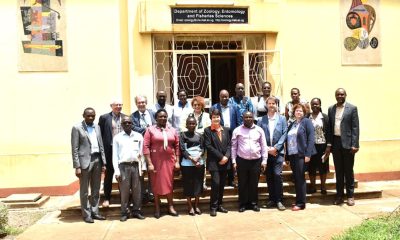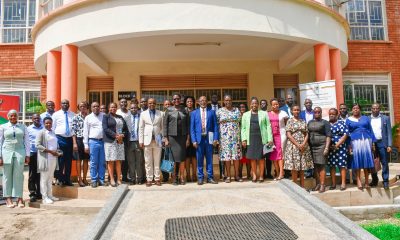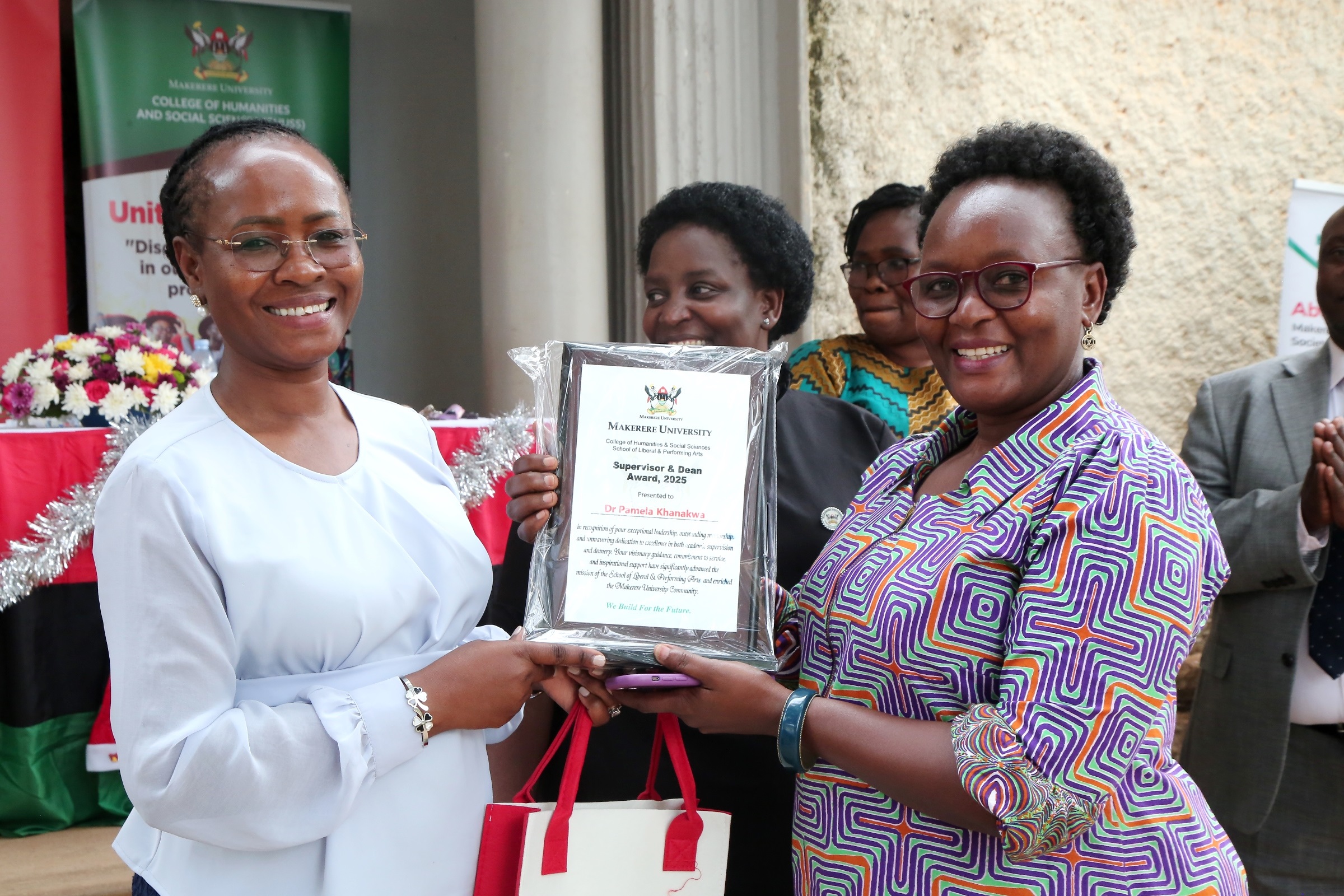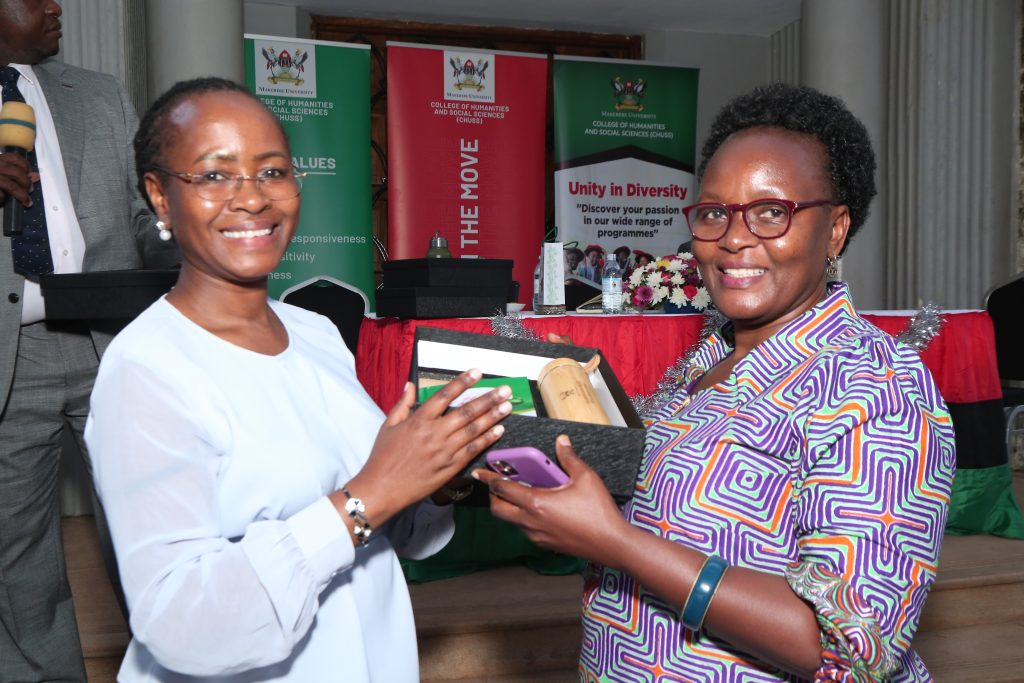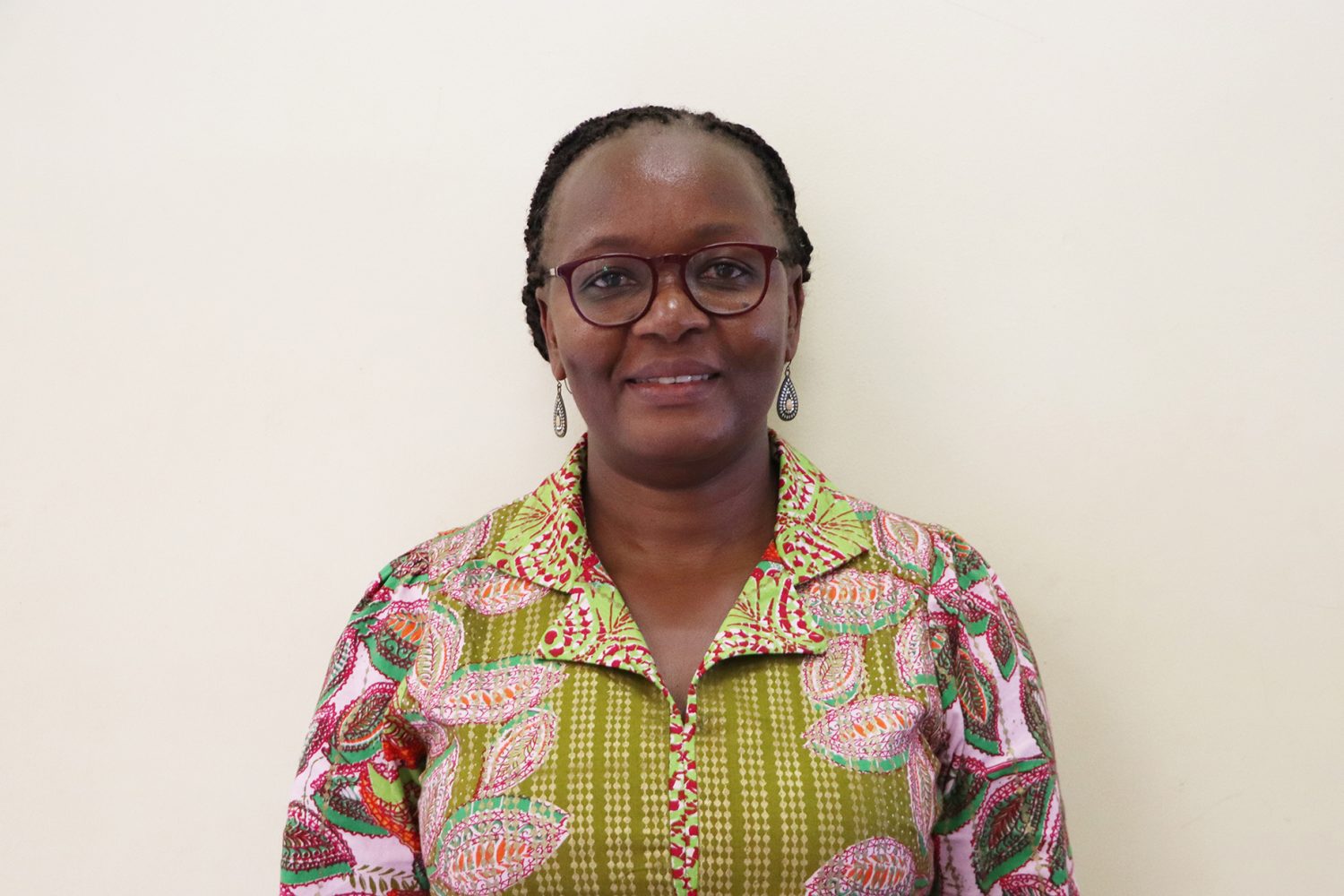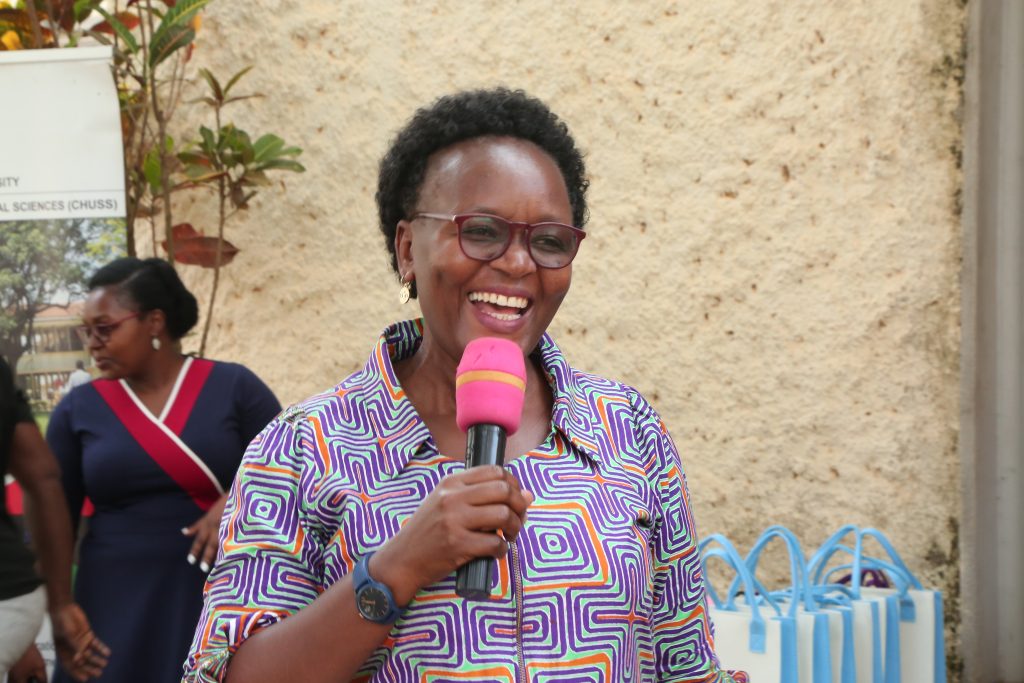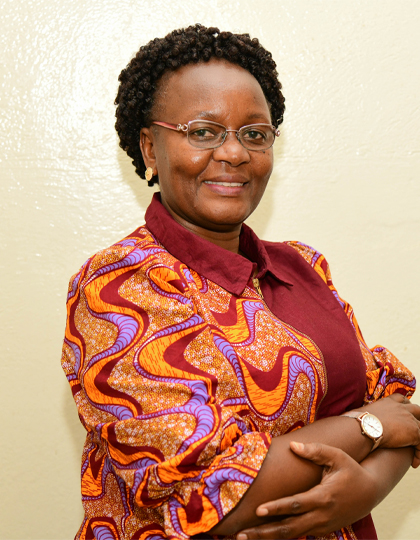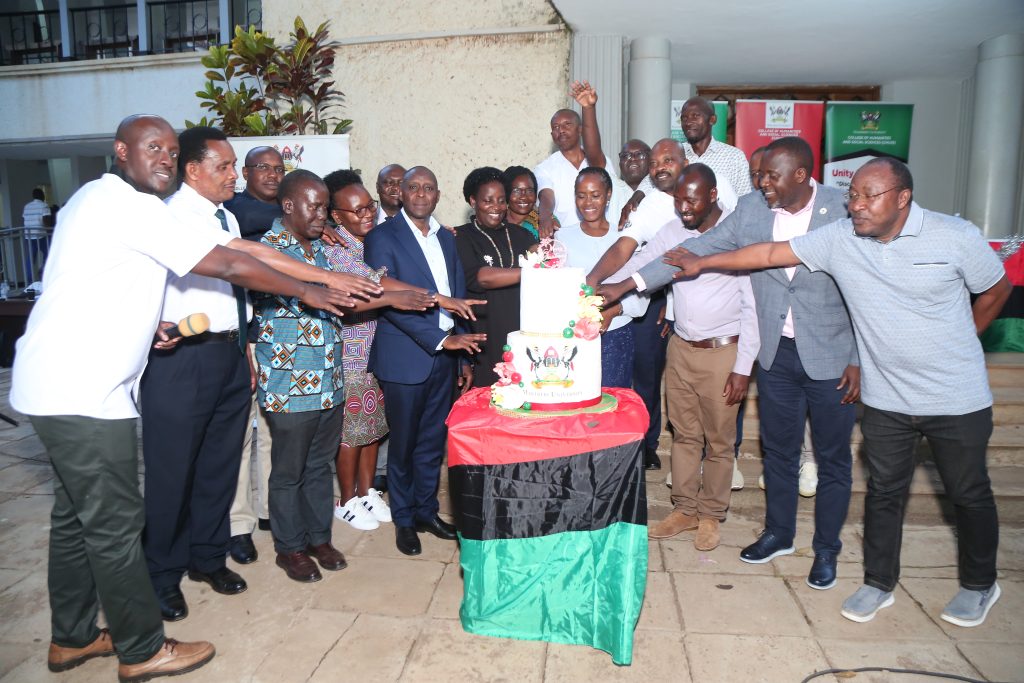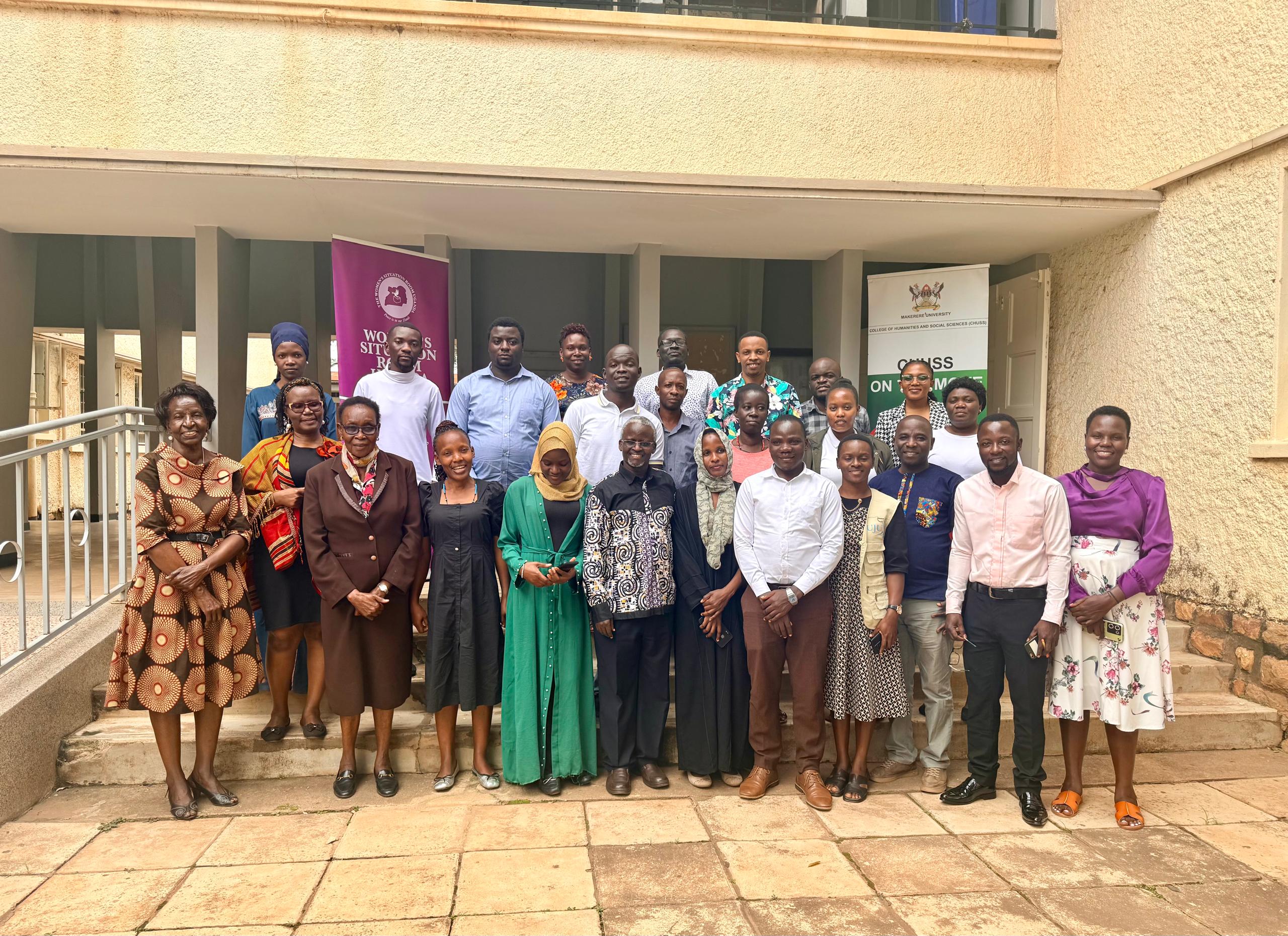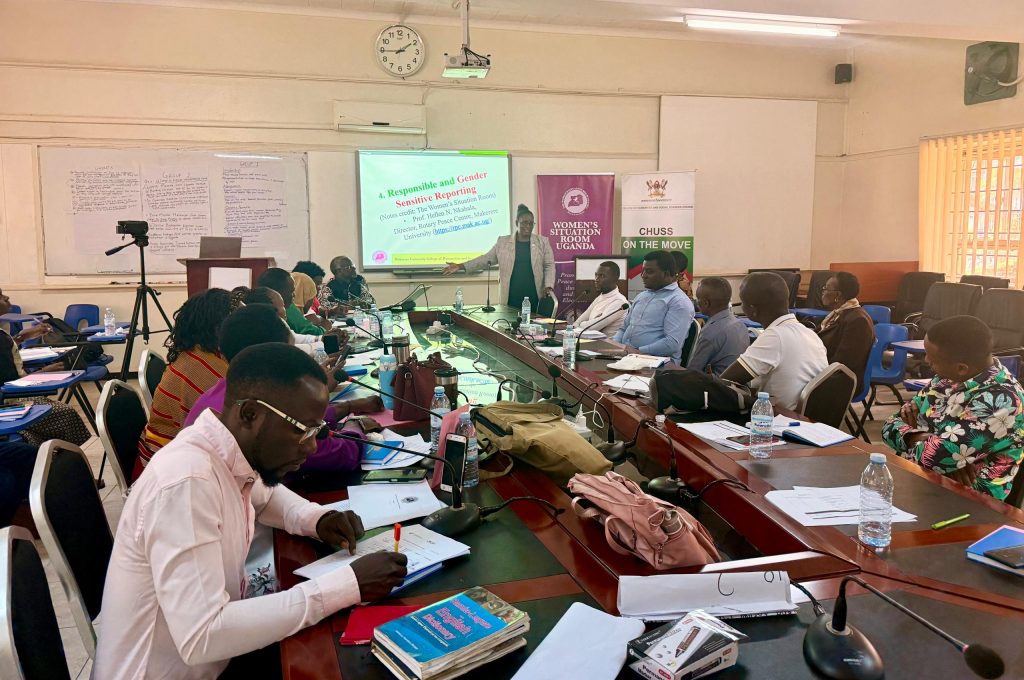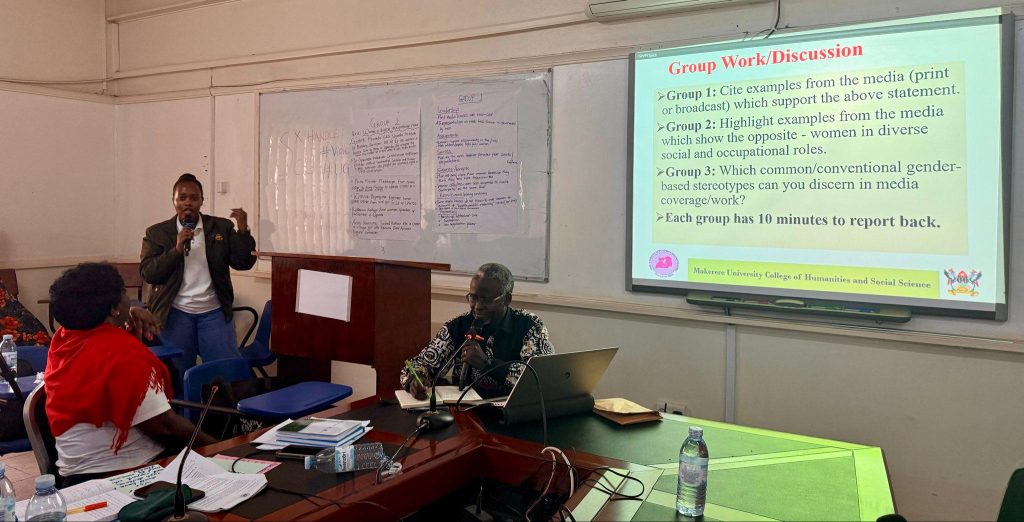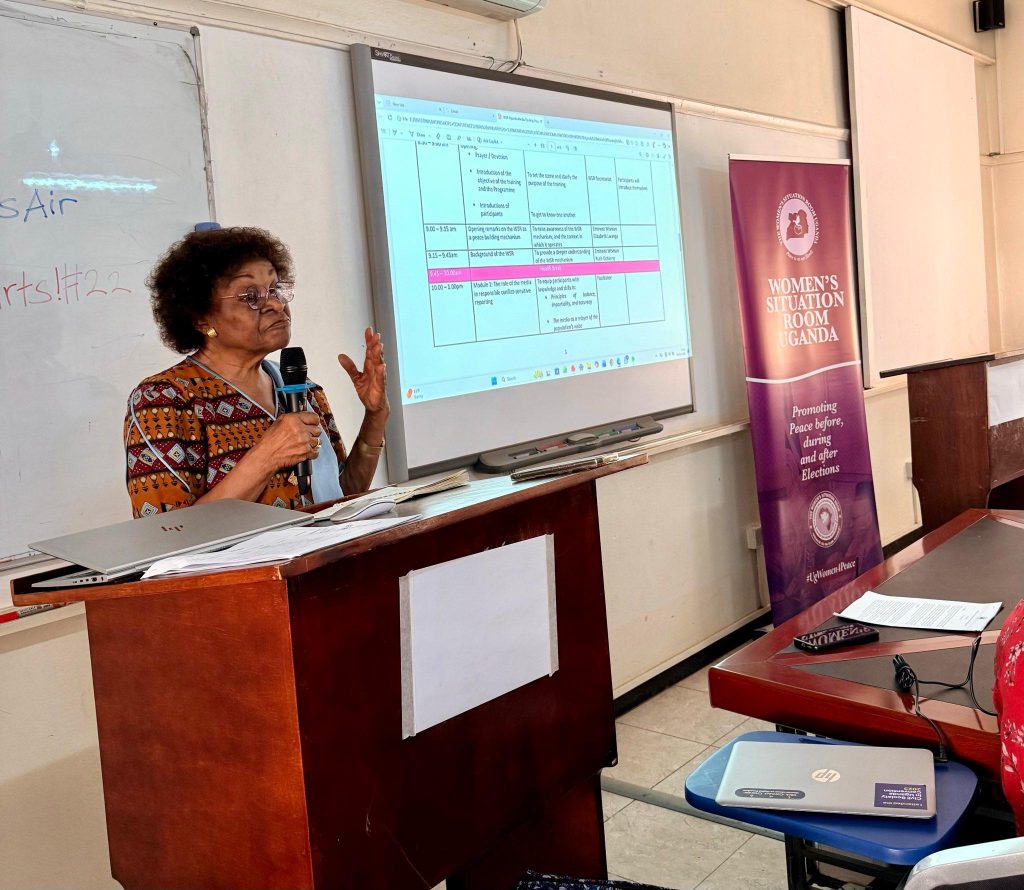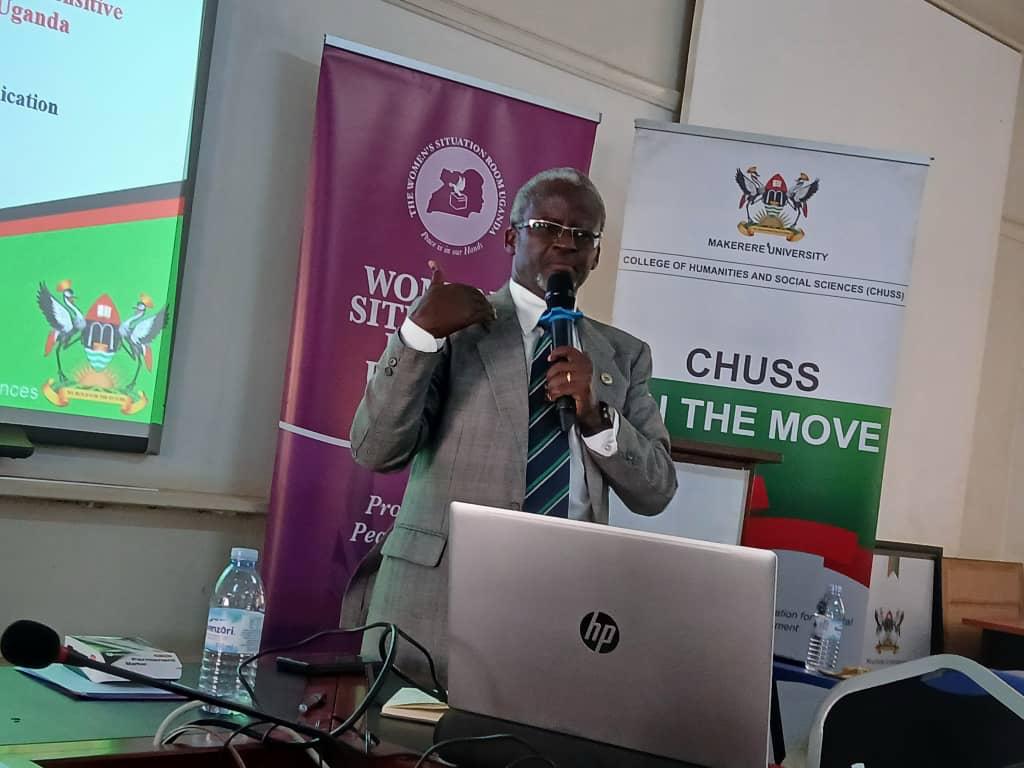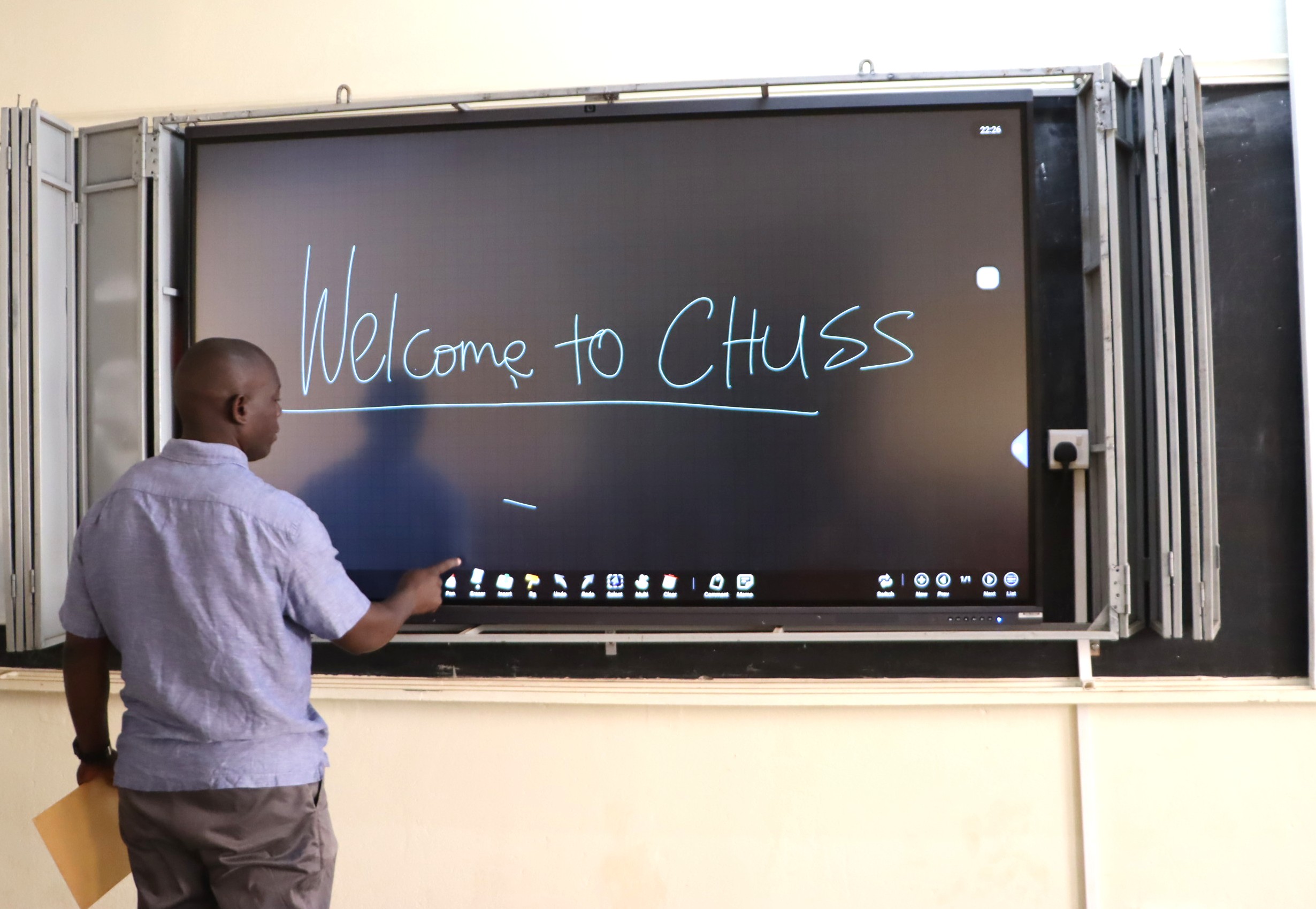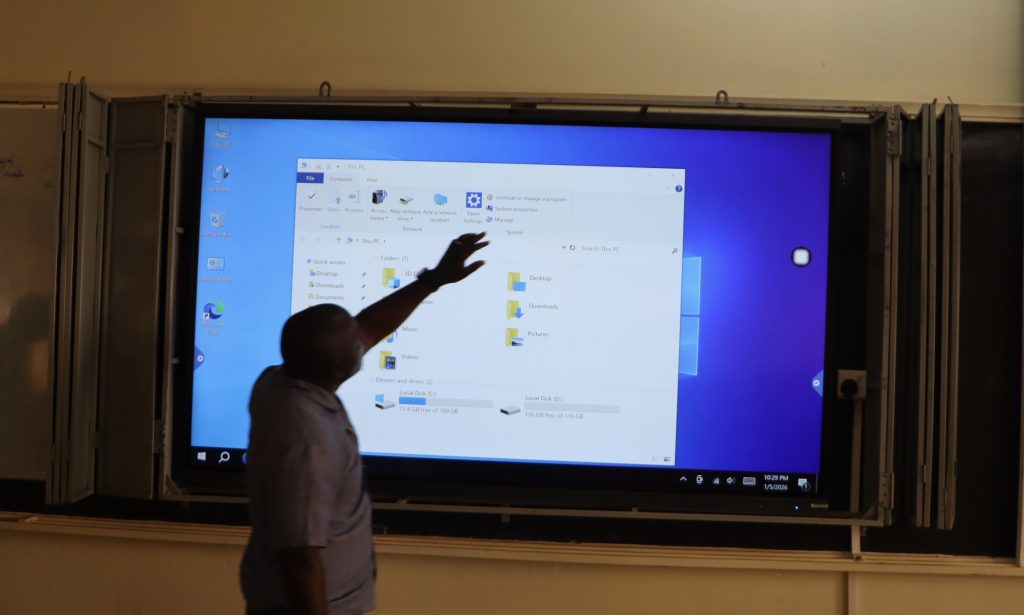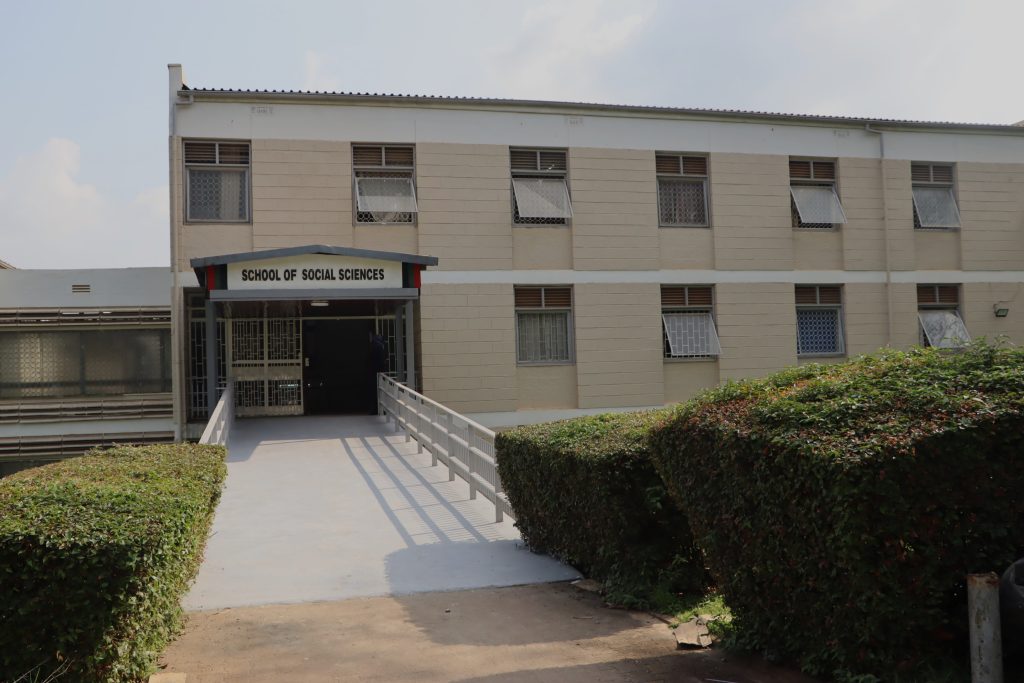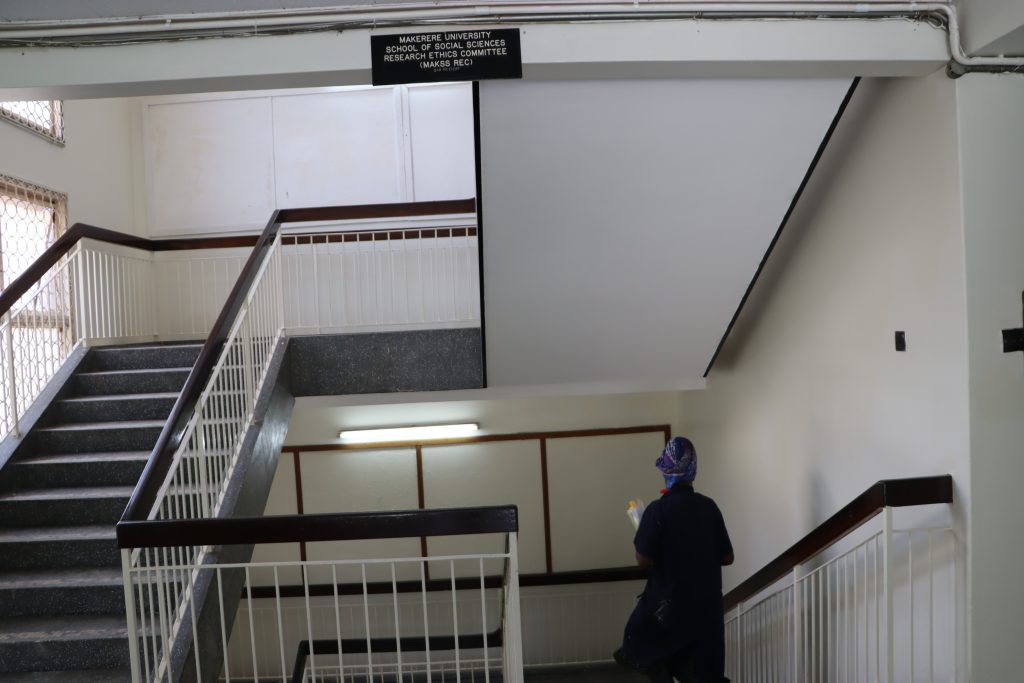A virtual international conference on “decolonising tertiary dance education: time to act”, was on 7th April 2022 opened with a call on the dance scholars and practitioners to reform dance in higher education to churn out graduates with skills and competencies that are responsive to the ever-changing local and global conditions.
The two day conference (7th-8th April 2022) was collaboratively hosted by Stockholm University of the Arts, Department of Dance Pedagogy and the Department of Dance, and the Department of Performing Arts and Film, Makerere University.
The conference held was opened by the Vice Chancellor, Makerere University Prof. Barnabas Nawangwe and attended by the Principal CHUSS represented by the Dean School of Liberal and Performing Arts Prof. Patrick Mangheni. It brought together dance scholars, performers, and educators from across the world.
The conference organizing committee comprised of Dr. Sylvia Antonia Nakimera Nannyonga-Tamusuza and Dr. Alfdaniels Mabingo from the Department of Performing arts and Film, Makerere University; Dr. Lena Hammergren, Dr. Tone Pernille Østern, and Kristine N. Slettevold from the Department of Dance, Stockholm University of the Arts; and Dr. Rose Martin from the Department of Teacher Education, Norwegian University of Science and Technology.
While opening the conference Prof. Barnabas Nawangwe said, the collaborative effort reveals the possibilities for the partnering institutions to engage in further collaborations in research, teaching, community engagement, and academic mentorship in the field of dance education.
Prof. Nawangwe said, Makerere University places a lot of value on international collaborations and knowledge transfer partnerships describing the conference as another testimony of the University commitment to cultivate internationalization of knowledge production and exchange.
“The conference is going to offer opportunities for international scholars, performers and researchers in dance to share their research output. We hope that the conference will inspire more exchanges between scholars, researchers, and performers”. Nawangwe said.
Noting that the conference comes at a time of profound changes in society’s social, cultural, economic, and intellectual life, the Vice Chancellor said, in Africa in general and Uganda in particular, the discipline of dance has always been an essential practice of communication, expression, and connection.
This centrality of dance to human life according to Prof. Nawangwe manifests itself in the diverse dances that different communities in Uganda are endowed with.
“The diversity of the presenters and topics of presentation underscores the importance and value that scholars, researchers, and practitioners attach to the issue of decolonizing tertiary dance education. As the Ugandan economy undergoes rapid transformation, dance practices are taking center stage in spurring creative innovations and availing opportunities for people to earn a living.
Therefore, reforms in dance in higher education are needed to produce graduates with skills and competencies that are responsive to the ever-changing local and global conditions. The theme of decolonization in higher education is crucial to the work of dance scholars and practitioners because it seeks to value and elevate knowledge, people, and practices that dominant Western academic systems have marginalized”, Prof. Nawangwe stated.
The Vice Chancellor said, as Makerere celebrates 100 years of impacting the world, Makerere University is at the forefront of decolonizing higher education through teaching, research, and community engagement.
He reported that the Department of Performing Arts and Film was founded on the pillar of Indigenizing the performing arts through higher education and as such, the joint conference aligns with this historical agenda of centering indigenous knowledge, people, and practices in the academy.
Dance, being one of the most profound ways of cultural expression and practice in Uganda, Nawangwe said, it will remain an essential academic discipline at Makerere University.
“The dance research and scholarship that staff in the Department of Performing Arts and Film have undertaken and developed continue to be valuable to academic work and practices locally and globally. The joint conference adds immeasurable contribution to the relevance of the dance discipline at Makerere University”, The Vice Chancellor underscored.
Representing the Principal College of Humanities and Social Sciences, the Dean, School of Liberal and Performing Arts Assoc. Professor Patrick Mangeni said, the conference comes at a time when the college is examining the historicization of the humanities at Makerere University since 1922, as part of the celebrations to mark 100 years since Makerere University was founded.
Prof. Mangeni said, the discipline of dance has been part of the history of Makerere University ever since it was established as an academic discipline in the department of Performing Arts and Film in 1971. He said, the college values the subject of dance because it has always been part of the social and cultural experience and reality of our society.
Mangeni explained that the embodied nature of dance knowledge is so essential to human existence.
“Dance has the ability and power to connect people, spur innovation and creativity, build communities, facilitate positive social transformations, and advance transdisciplinary collaborations.
The theme of decolonizing dance in tertiary education – time to act, fits well into the grand vision of the College of Humanities and Social Sciences, which seeks to reimagine and rethink knowledge production in humanities at Makerere University from the perspective of Indigenous epistemologies”. Prof. Mangeni said.
Prof. Mangeni told participants that the involvement of the Performing Arts and Film department in this conference demonstrates the commitment to initiate and support critical actions to advance the decolonization of knowledge in higher education and communities, expressing hope that the conference is just the beginning of transdisciplinary and transnational collaborations aimed at centering knowledge from the global south in tertiary education.
He announced that the Department of Performing Arts and Film, Makerere University and The Norwegian University of Science and Technology (NTNU) have been honored to organize and host the 2nd conference on decolonizing tertiary dance education, which will take place in 2024.
Read more from Dr. Alfdaniels Mabingo latest book on Ubuntu as Dance Pedagogy
https://link.springer.com/book/10.1007/978-981-15-5844-3
View Article on CHUSS
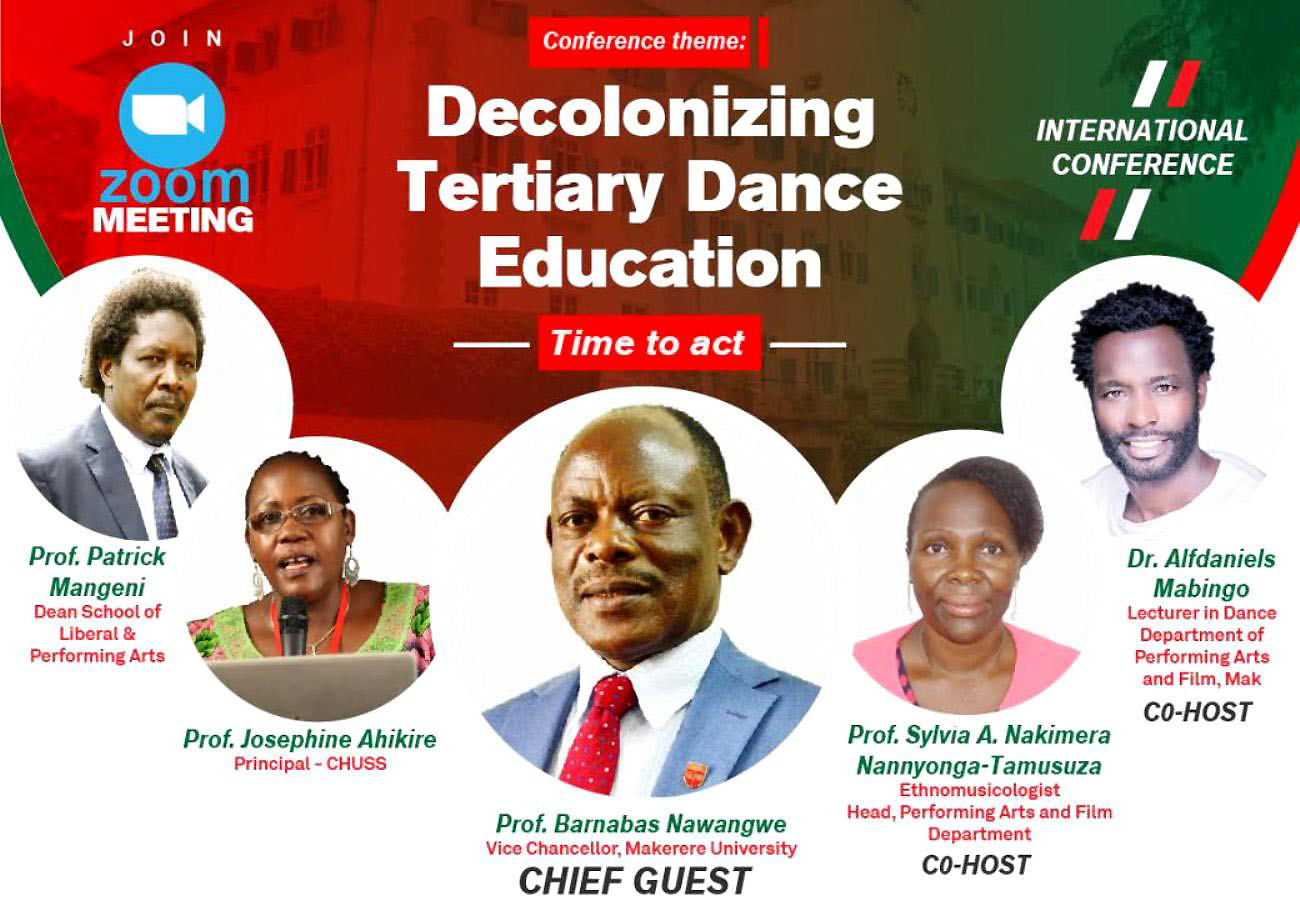

 General2 weeks ago
General2 weeks ago
 Natural Sciences2 weeks ago
Natural Sciences2 weeks ago
 Agriculture & Environment2 weeks ago
Agriculture & Environment2 weeks ago
 General7 days ago
General7 days ago
 Health2 weeks ago
Health2 weeks ago


